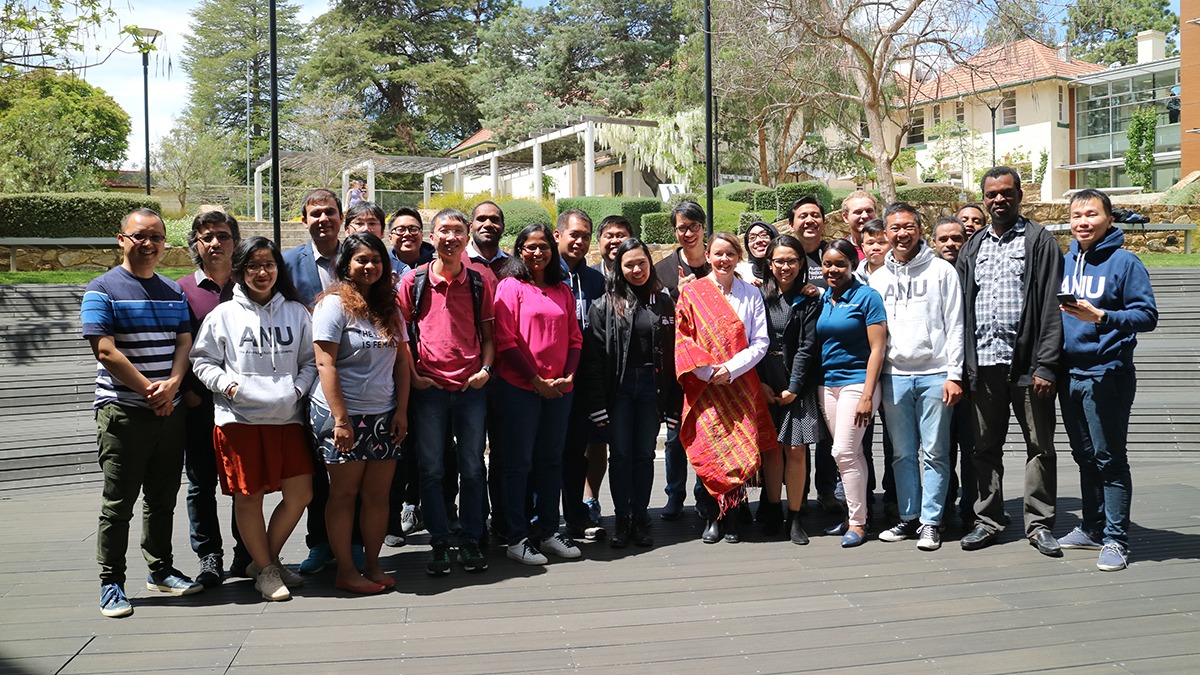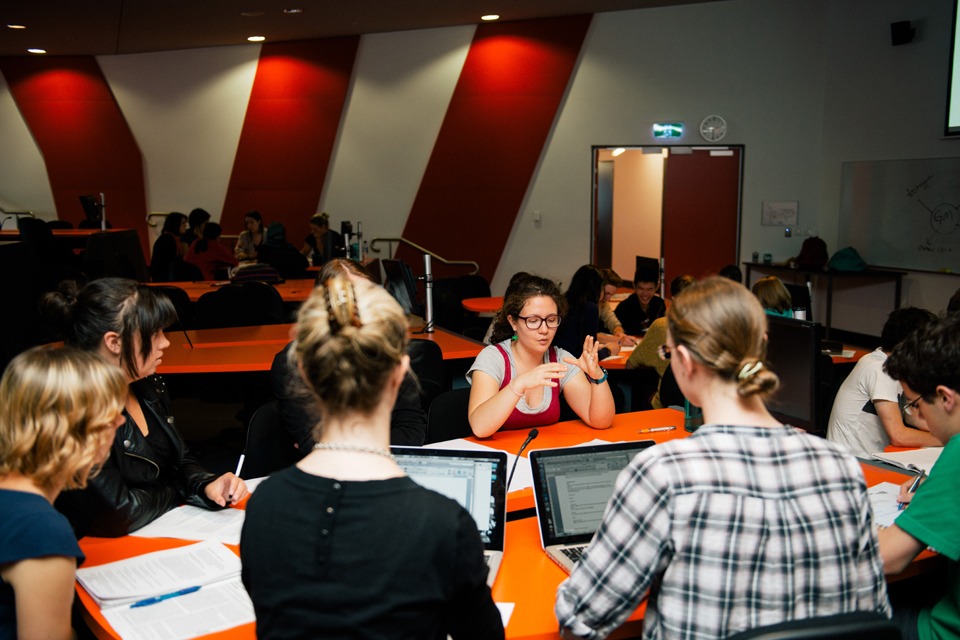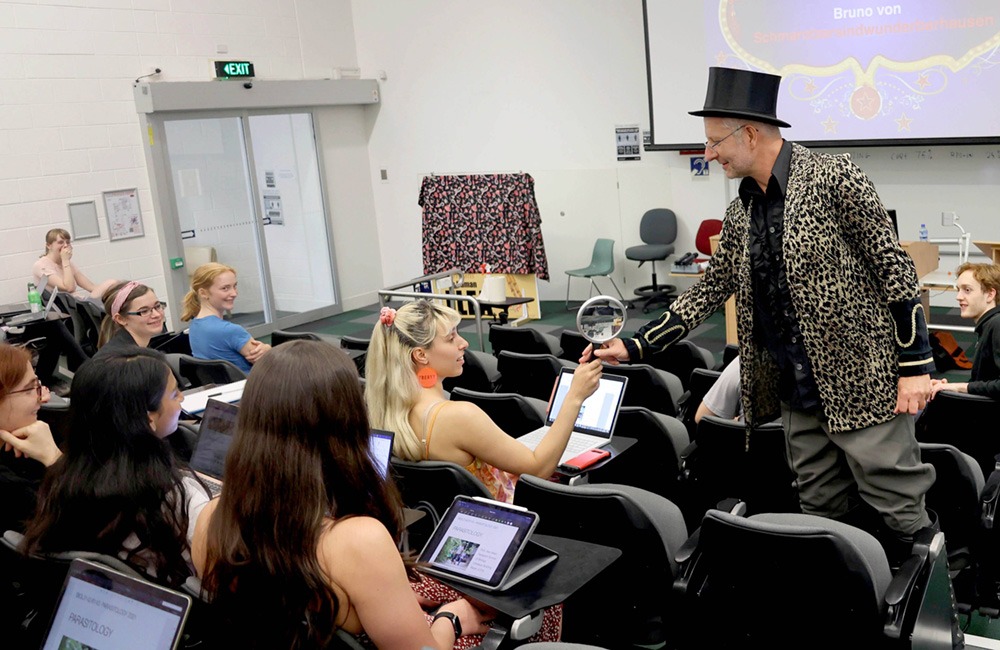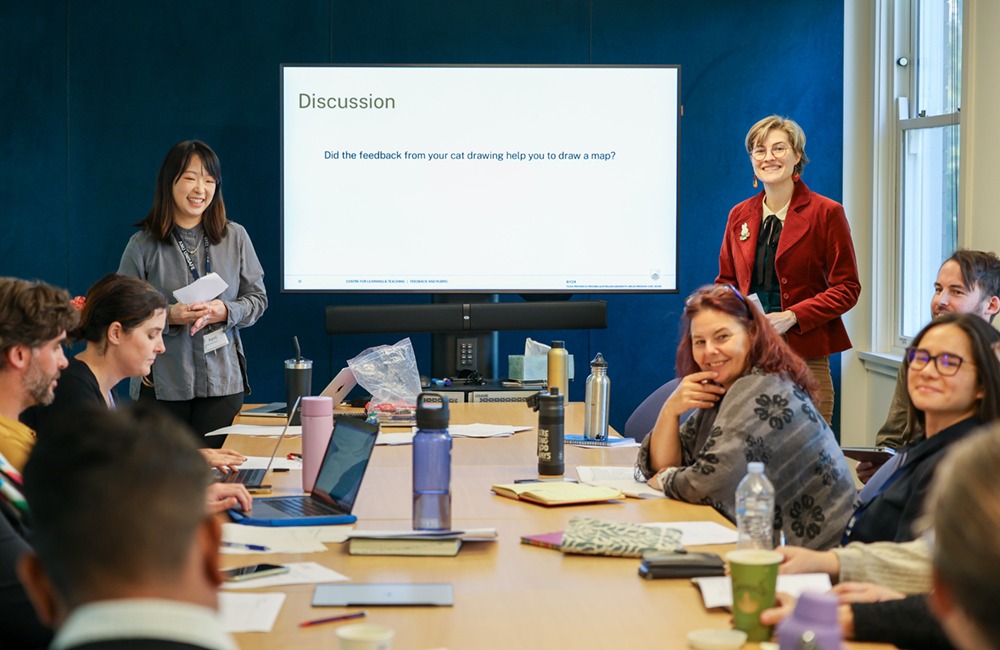Reimagining the curriculum of macroeconomics
You never get to the point where you are satisfied because you realise that at each point there is more that you can do. And understanding why you do what you do is the only way for you to identify how to improve as a teacher, and therefore, how to enable other people and students to change as well, to empower them.
The challenge of teaching what is often described as the ‘dismal’ science of economics may be daunting to some, but not for Associate Professor Creina Day, who teaches macroeconomics to postgraduate students at the Crawford School of Public Policy. She sees it instead as an opportunity to create a transformative learning experience for students that opens possibilities – be it to address inequality or to show how economics can enlighten research in other fields.
The 3Rs philosophy and gender inclusive learning
Creina’s teaching philosophy can be encapsulated in three R’s: reflective practice, research-led curriculum and relevance. Reflective practice is about looking at the scholarly literature, while research-led curriculum is about looking at the latest research in economics.
In making her course accessible and relevant to all students, Creina tells her students that there are always three ways to approach important concepts, beyond mathematics, which is the usual starting point for economics. “Maths is just a tool, hopefully to simplify, not to complicate.” “Diagrams make it easier, almost instinctive, to conceptualise.” The third thing that Creina constantly advocates for is intuition, and good old-fashioned common sense. “If you can relate it back to your own life and explain it as you would to a member of your family or a person at the supermarket, if you can do that, then you understand it.”
Creina also believes that one should not be constrained by what is in the textbook, and she works to find and apply subjects that may be relevant to students. “We know they are interested in inequality. We also know that female students are underrepresented in economics.” To address gender-inclusive learning in postgraduate economics, she now incorporates gender issues in her course.
The economics of fertility
“Recent research finds that students identify inequality as the most pressing issue in economics today. And yet, there are many economics textbooks that overlook inequality. One way to address this gap is to find relevant journal articles, simplify the mathematics, and provide a diagrammatic approach that students will understand. They’ll then be able to derive, draw and conceptualise the intuition behind these models.”
So how does one keep their course relevant and interesting in the classroom? Creina goes beyond what is in the textbook and expands to adding concepts from other disciplines such as demography. She cites the new field of the economics of fertility that looks at the relationship between gender inequality, fertility and living standards as an example of something relevant, but largely absent from textbooks. To address this Creina has included in the design of the course and in a recently published article in the Australian Economic Review an accessible treatment of the new economics of fertility for students and policymakers.
Inspiration from students
Through SELT feedback Creina has learned that her teaching on gender and economics has inspired a student’s Masters’ research essay or motivated another student to pursue an academic career. Reading comments like these from students reaffirms her dedication to teaching because of the possibility of being a positive, substantive influence on someone’s future. “It’s always nice when students say, I love this course, I really enjoyed this course.” Creina says, “But when I read this has inspired me to do something further that I wouldn’t have previously considered – it’s even better. I could not ask for more”.

Associate Professor Creina Day with her students
A recent graduate reflected, “I will always remember the macroeconomics courses with Associate Professor Creina Day. She made learning so interesting. One thing I especially liked was how she demonstrated how math, instead of making our understanding harder, can make our comprehension of economic concepts more precise and even simpler.”
Paying it forward
With early career teachers, paying it forward is about showing them how to do it themselves. “If you share what works it is like a little group of people all then showing others how this works. And before you know it is spreading. It’s a wonderful thing. It’s a very positive thing.”
Her advice to early career teachers is to be open to innovation and stay student-centered, and to continually reflect on their teaching practice. “Don’t be afraid to question yourself and read widely. Branch out.”
“There’s absolutely nothing wrong with looking at what you could do better. After all, it’s a moving target. Don’t be afraid to reach out to those that are more experienced than yourself. Certainly, don’t be afraid to share what you’ve stumbled across yourself because a fresh perspective is always the best.”
An eye on the future
With such a wealth of experience and the benefit of being able to look back, Creina sees the biggest challenge on the horizon for higher education is to ensure that it is inclusive and adaptable to diverse student needs.
“The challenge is integrating emerging research into the curriculum. I anticipate that there’ll be a wealth of research for textbooks to incorporate. We’re all on the cusp of an era where there will be emerging research on a scale never seen before both within the discipline of economics and other disciplines. And integrating that emerging research into the curriculum in ways that are accessible and engaging to students will be the challenge.”
What Creina is looking forward to in higher education is promoting gender equity in education and exploring how to ensure that those approaches are adopted more widely across the sector. “Beyond the gender perspective, there are other perspectives to integrate. There’s a wealth of underrepresented students in economics, so there will be no shortage whatsoever of work in teaching and learning economics.”
“This is the beginning of rethinking what economics is and reimagining what it means in a way that resonates with students from a diverse background and experience. There are so many things to look forward to. I’m quite excited about the future.”
Creina Day was a recipient of the 2023 Vice-Chancellor’s Award for Excellence in Teaching and is a Senior Fellow of Advance HE and active in the ANU Educational Fellowship community.
Nikki Ayende, Communications Specialist at ANU Centre for Learning and Teaching.







